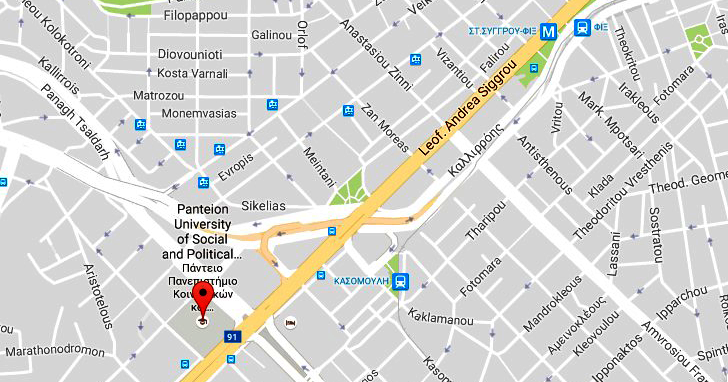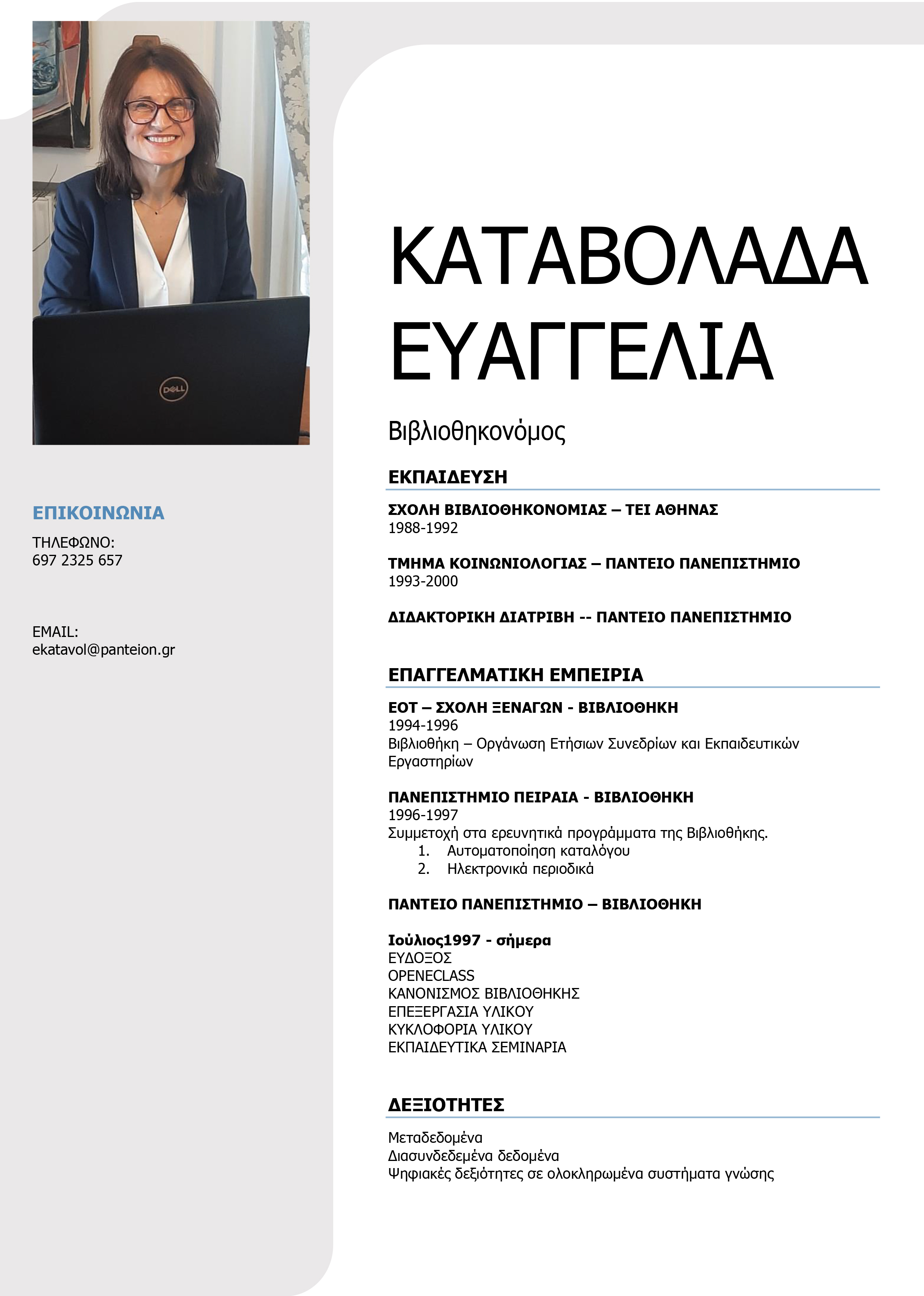
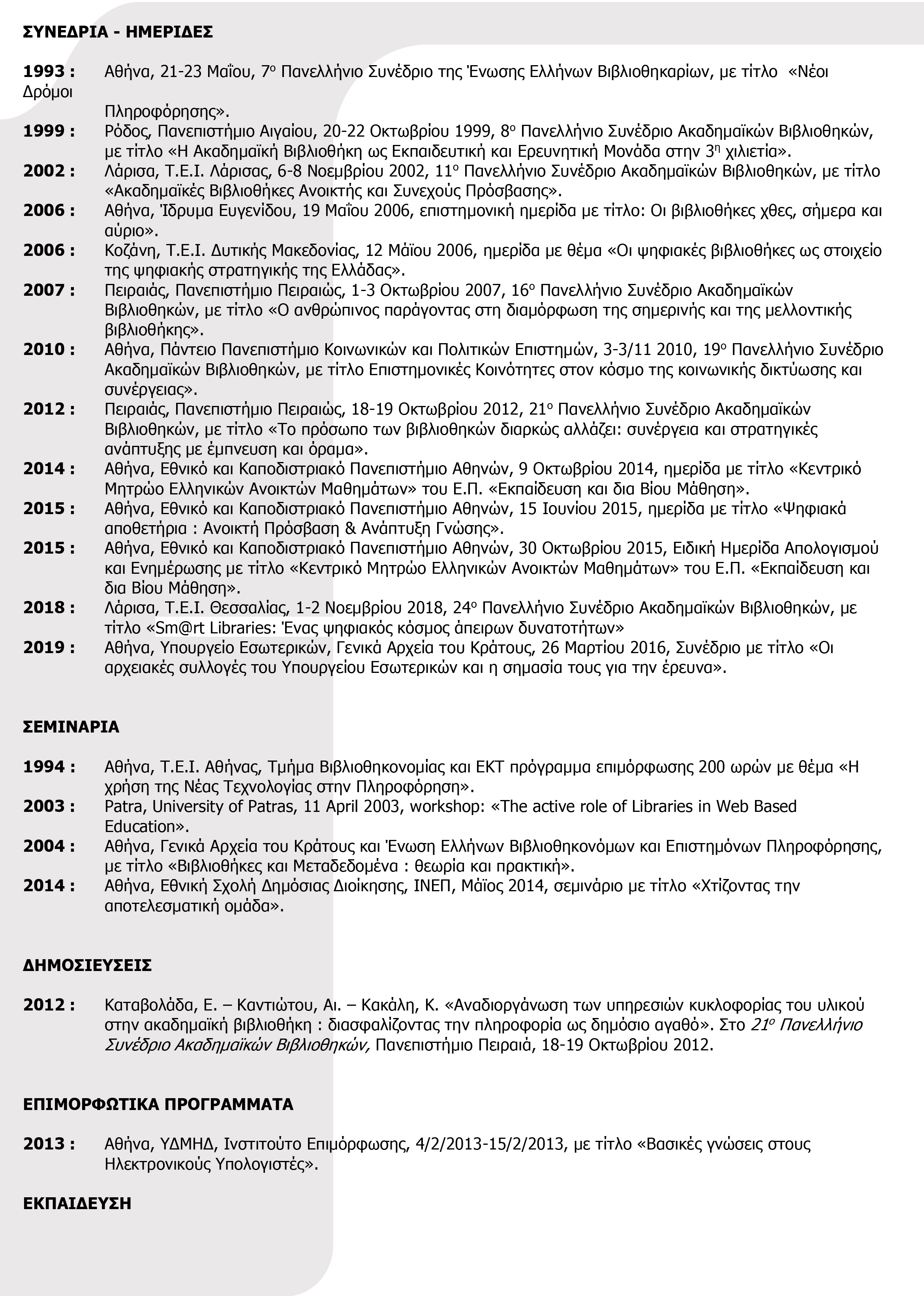
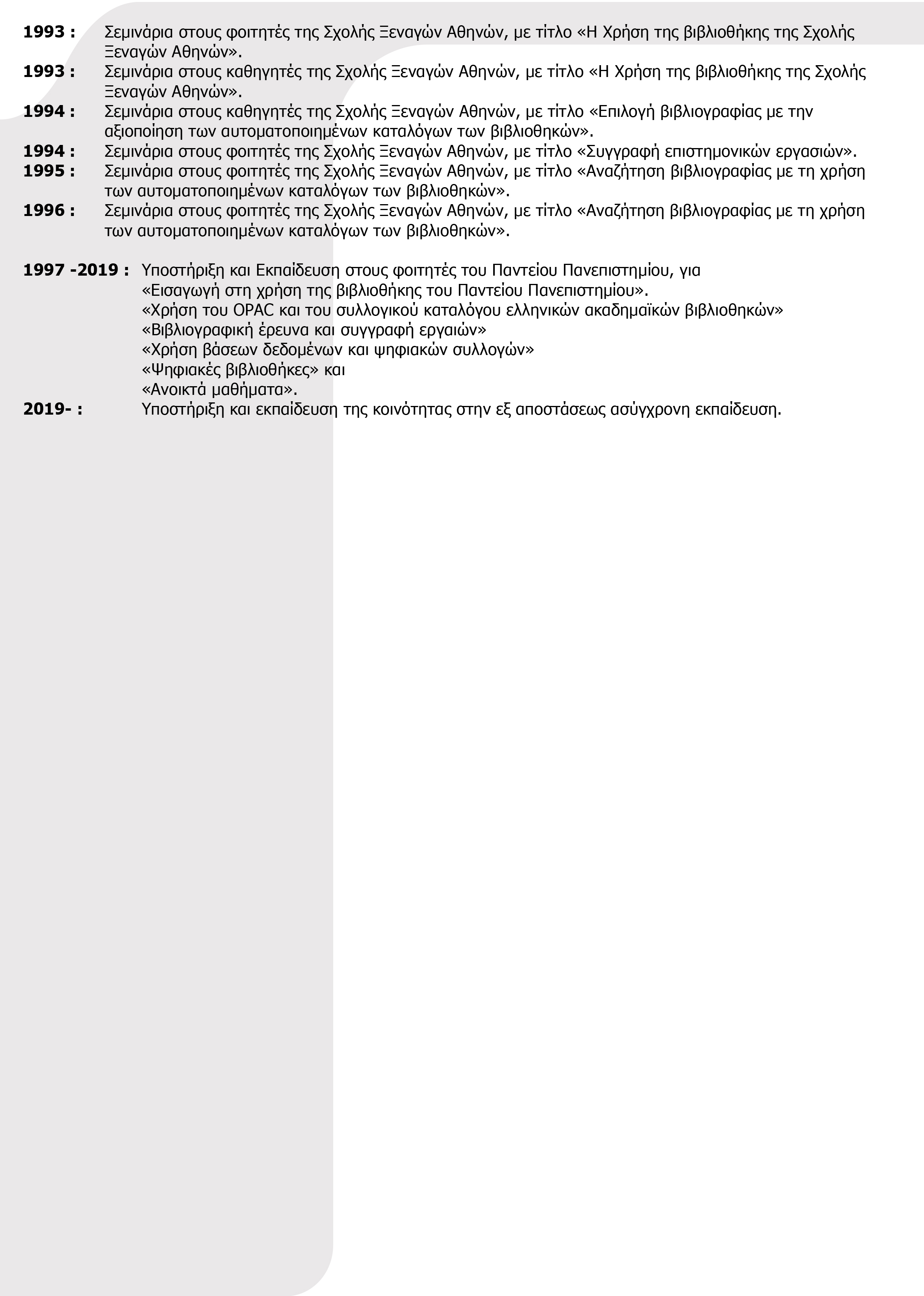
Christos Dermentzopoulos studied Sociology in Greece and History, Anthropology and Cinema in France (MA in History and Civilisation, University of Paris 1, Pantheon – Sorbonne and Anthropology / Cinema, Ecole des Hautes Études en Science Sociales, Paris). Ph.D in Sociology, Section: Aspects of the new Greek social life, Panteion University of Athens. Post-Doc in Film Studies in the Department of Communication, Media and Culture (1999-2021). He used to teach Anthropology of Art, Cultural Studies and Politics and History/Theory of Cinema in the Department of Fine Arts and Sciences of Art of the School of Fine Arts at the University of Ioannina from 2001 until 2022. He was the Director of the History of Art Laboratory in the same faculty for five years. Since November of 2022 he is a faculty member of the Department of Communication, Media and Culture of Panteion University of Athens.
He was a Tutor at the Hellenic Open University in the MA in Cultural Management from 2006 until 2018 and he was a Tutor at the Open University of Cyprus in the undergraduate Programme Studies in Hellenic Culture (2010-2013). He was an Academic Coordinator in the MA Programme Cultural Policy and Development at the Open University of Cyprus (2015-2017). Today he is a coordinator and Tutor at the Hellenic Open University in the MA Programme in Public History in the unity History and Cinema.
He was part (2017-2022) of the research team of the acclaimed multi-stakeholder Horizon 2020 Programme DETECt -Detecting Transcultural Identity in European Popular Crime Narrative. In addition, he is the Co-founder and Director of the arts and cultural organization Biennale of Western Balkans and has coordinated the educational modules in Secondary Education for Digital Scholarship.
He is the writer of the books The popular novel (pulp fiction) on banditry in Greece. Myths, Representations, Ideology (Plethron Editions, 1997) and The Invention of Place. Nostalgia and Memory in the Film A touch of spice (Opportuna Editions, 2013 and 2015) and co-editor of the volumes: Anthropology, Culture and Policy (with M. Spyridakis, Metaihmio Editions, 2004), Aspects of Popular Culture (with V. Nitsiakos, Plethron Editions, 2007), Ordinary People. Studies on Popular Culture (with G. Papatheodorou, Opportuna Editions, 2019) and European Crime Narratives (with N. Filippaios and L. Flitouris, Metaihmio Editions, 2022). He is a guest editor (with Rania Kosmidou), of the Special issue Studies in cultural memory (volume 12, Issue, 1 March 2016) of the International Journal of Media and Cultural Politics and the Special issue (with Kostoula Kaloudi) Cinema and history: a country’s memory and the countries of memory (volume 5-7, 2019-2021) of the Interdisciplinary Journal for Theatre and the Arts, Theater Polis.
He is the editor of the series Alterities and Film Studies (Metaihmio Editions). He is also a reviewer and member of the editorial board in Journal Utopia.
His research interests concern visual and popular culture, anthropology of art, cultural politics and popular cinema. He is a member of Media Communications and Cultural Studies Association (MeCCSA) and L' Association internationale des chercheurs en Littératures Populaires et Cultures Médiatiques (LPCM) / International Research Association in Popular Literature and Media Culture (PLMC).
Office: ΣΤ2 [6th floor - New Building]
E-Mail: This email address is being protected from spambots. You need JavaScript enabled to view it.
Mobile phone: 6944697811
Vasileios (Bill) Roungas is an Assistant Professor at the Department of Communication, Media and Culture. He studied economics in Panteion University and business mathematics in Athens University of Economics and Business, in Greece, and completed his second master, in Utrecht University, on game and media technology. He obtained his PhD on gaming simulations for decision making, from Delft University of Technology. He then worked as a postdoctoral researcher at KTH Royal Institute of Technology, in Stockholm, with games and participatory methods in collaboration with academic, private and public organizations (e.g., Swedish Ministry of Transportation, Airline companies). His teaching and research interests concern the design, implementation and usage of new technologies, models and games in various sectors and in education. His publications are available on Google Scholar at https://scholar.google.com/citations?user=AAxljXsAAAAJ.
Γνωστικό αντικείμενο: Φιλοσοφία και Αισθητική των Μέσων
Ο Χάρης Ράπτης είναι διδάκτωρ του Τμήματος Επικοινωνίας, Μέσων και Πολιτισμού του Παντείου Πανεπιστημίου (2011), όπου διδάσκει φιλοσοφία και αισθητική των μέσων. Δίδαξε στο ίδιο Τμήμα ψυχολογικές και ψυχαναλυτικές θεωρίες των μέσων (2015-2021) και φυσικές και τυπικές γλώσσες της επικοινωνίας
(2018-2021) σε προπτυχιακό και μεταπτυχιακό επίπεδο.
Τα ερευνητικά του ενδιαφέροντα επικεντρώνονται στη θεωρία των μέσων, τη σύγχρονη ηπειρωτική φιλοσοφία, τη φροϋδική και λακανική ψυχανάλυση, τη λογοτεχνική θεωρία, και στις διασυνδέσεις τους.
Είναι μέλος της συντακτικής επιτροπής του περιοδικού ψυχανάλυσης, φιλοσοφίας και τέχνης αληthεια (Αθήνα, Εκδόσεις Πατάκη).
Το 2010, συνεπιμελήθηκε (με τον Διονύση Καββαθά) το ειδικό αφιέρωμα «Ψυχανάλυση και θεωρίες των μέσων» (αληthεια 4-5: 13-262).
Ο Χάρης Ράπτης είναι συγγραφέας της μονογραφίας Poe–Lacan–Derrida: Συνδεσμολογίες (Αθήνα, Εκδόσεις Σμίλη, 2013).
Μεταξύ των δημοσιεύσεών του περιλαμβάνονται:
Είναι συνδιευθυντής (με τον Δ. Καββαθά) της επιστημονικής σειράς «Φιλοσοφία και Αισθητική των Μέσων» στις Εκδόσεις Σμίλη.
Τα ενδιαφέροντα του Χάρη Ράπτη δεν περιορίζονται στην ακαδημαϊκή σφαίρα. Μετά τις πανεπιστημιακές του σπουδές, παρακολούθησε (2014-2016) το εκπαιδευτικό πρόγραμμα στη συμβουλευτική και στην ψυχοθεραπεία του Πανεπιστημίου του Ανατολικού Λονδίνου.
Συνεχίζει την εκπαίδευσή του στην ψυχανάλυση λακανικού προσανατολισμού στο Κέντρο Ψυχαναλυτικών Ερευνών της Αθήνας.
Eίναι μέλος της Εταιρείας Βορρόμειος Κόμβος της Νέας Λακανικής Σχολής Ψυχανάλυσης στην Ελλάδα.
ΩΡΕΣ ΓΡΑΦΕΙΟΥ:
Theocharis Raptis obtained his doctoral degree from the Department of Communication, Media and Culture of Panteion University (2011), where he is currently teaching philosophy and aesthetics of the media. He taught at the same Department psychological and psychoanalytic theories of the media (during the period 2015-2021) as well as natural and formal languages of communication (between 2018-2021) in undergraduate and postgraduate courses.
His research interests centre on Freudo-Lacanian psychoanalysis, continental philosophy, literary theory, media theory, and their interconnections.
He is a member of the editorial board of the Greek journal for psychoanalysis, philosophy and the arts αληthεια (Athens, Patakis Editions).
His interests are not limited to the sphere of academia. After his university studies, he followed (between 2014-2016) the programme in counselling and
psychotherapy of the University of East London.
He is a practicing psychotherapist.
He continues his training in the Lacanian orientation of psychoanalysis at the Centre f Psychoanalytic Studies of Athens.
He is a member of the Borromean Knot Society of the New Lacanian School of Psychoanalysis in Greece.
Pantelis Vatikiotis (PhD, MA in Media & Communication Studies, University of Westminster, London; BA in Sociology, Panteion University of Social and Political Sciences, Athens) is an Assistant Professor at the Department of Communication, Media and Culture and Director of Journalism Lab (J-Lab), Panteion University.
He has also taught at: Kadir Has University, Istanbul; Izmir University of Economics (Turkey), University of Ioannina; Business College of Athens; New York College of Athens (Greece), University of Westminster, London (UK). From 2006 to 2008 he worked in mass media (SKAI TV).
His research and teaching interests include: new media and journalism, sociology of the internet, alternative media, social movements and activism, media and democracy. His publications include book chapters and journal articles in international academic publications.
For detailed publication record visit:
E-mail: This email address is being protected from spambots. You need JavaScript enabled to view it.
Telephone: 210-9201736
Office: D18, 4th Floor - New Building
Office hours:
Kostas Karpouzis is an Assistant Professor at the Department of Communication, Media and Culture. In his research, he’s looking for ways to make computer systems more aware of and responsive to the way people interact with each other. He is also investigating how gamification and digital games can be used in classroom and informal settings to assist conventional teaching and help teach social issues and STEAM subjects to children and adults. Since 1998, he has participated in more than twenty research projects funded by Greek and European bodies; most notably the Humaine Network of Excellence, leading research efforts in emotion modelling and recognition, the FP6 IP CALLAS project, where he served as Area Leader of Affective applications, the FP7 TeL Siren project (Technical Manager), which was voted Best Learning Game in Europe for 2013 by the Games and Learning Alliance Network of Excellence, the H2020 iRead project, which produced Navigo, the winner of the GALA Serious Games competition for 2018 and the H2020 ECoWeB project which builds engaging and personalized mobile applications to promote emotional wellbeing and prevent mental health problems in adolescents and young adults.
He is a member of the BoD for the gi-Cluster of Corallia, which consists of industrial and academic members of the game and creative ecosystem in Greece, a member of the Hellenic Bioethics and Technoethics committee and Chairman of the Board of the Hellenic Association of Computer Engineers. He co-edited a book on “Emotion in Games: Theory and Practice” published by Springer in late 2016. His Google Scholar profile is available at https://scholar.google.gr/citations?user=12olpHgAAAAJ.Besides this, he is involved in a number of science communication activities, most notably Famelab Greece and openscience.gr. He’s also an advocate for technology and CS in primary schools, participating in the Girls Go Coding initiative and serving as an Ambassador of EU Code Week in Greece (until 2018). He has participated as a speaker in 3 TEDx events, including TEDxAthens in 2019, while in 2016, he authored a lesson on the TED-ed platform titled “Can machines read your emotions?”; the lesson surpassed 300.000 views in its first week.
This email address is being protected from spambots. You need JavaScript enabled to view it.
Elizabeth Arseniou received her M.Phil, and Ph.D in Modern Greek Studies at Centre for Ottoman, Byzantine, and Modern Greek Studies of The University of Birmingham, UK. She is a Professor of Modern Greek Literature. She has taught Modern Greek Literature and Culture in Greece, England, and the U.S.A.
Research interests:
Modernist, avant-garde, postmodernist poetry and poetics, history and theory of literature (iconology, utopia, vision and gaze, identity, speech act theory, performativity, rhetoric, etc.), gender identity and feminist writing, media and communication, literature and technology, translation studies, cultural theory, etc.
Books:
Poetry:
This email address is being protected from spambots. You need JavaScript enabled to view it.
Academia.Edu/Elisavet Arseniou
www.biblionet.gr/Ελισάβετ_Αρσενίου
Το Πάντειο Πανεπιστήμιο – Ειδικός Λογαριασμός Κονδυλίων Έρευνας στο πλαίσιο υλοποίησης της Πράξης «Απόκτηση Ακαδημαϊκής Διδακτικής Εμπειρίας σε Νέους Επιστήμονες Κατόχους Διδακτορικού́ 2019 - 2020» με κωδικό MIS 5045299 προσκαλεί Νέους Επιστήμονες, κατόχους Διδακτορικού́ Διπλώματος να εκδηλώσουν ενδιαφέρον για την παροχή διδακτικού έργου κατά το ακαδημαϊκό έτος 2019-2020, σε ένα από τα επιστημονικά πεδία που έχουν οριστεί από τα Τμήματα του Παντείου Πανεπιστημίου για το ακαδημαϊκό έτος 2019-2020.
Στο Πάντειο Πανεπιστήμιο αναλογούν 35 θέσεις για όλα τα Τμήματα, οι οποίες με την απόφαση της Συγκλήτου (Συνεδρίαση 18η, 4 4 201 99) κατανεμήθηκαν από 4 θέσεις σε όλα τα Τμήματα πλην του Τμήματος Κοινωνικής Ανθρωπολογίας στο οποίο κατανεμήθηκαν 3 θέσεις.
Οι ενδιαφερόμενοι/ες νέοι/ες Επιστήμονες κάτοχοι Διδακτορικού Διπλώματος καλούνται να υποβάλλουν αίτηση υποψηφιότητας σε ένα μόνο από τα επιστημονικά πεδία και για όλα τα μαθήματα που ανήκουν στο επιστημονικό πεδίο της επιλογής του υποψηφίου διδάσκοντα, σε μόνο ένα τμήμα του Παντείου Πανεπιστημίου καθώς επιτρέπεται μόνο μια αίτηση υποψηφιότητας ανά διδάσκοντα για το ακαδημαϊκό έτος 2019 – 2020.
Οι φάκελοι υποψηφιοτήτων θα πρέπει να έχουν υποβληθεί εντύπως σε δύο αντίγραφα το αργότερο έως και την Δευτέρα 15 Ιουλίου 2019

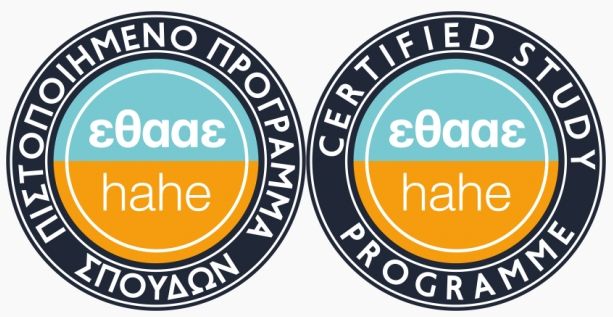
136 Syggrou Avenue - 17671 Athens - Greece
e-mail: emme@panteion.gr
| Telephone: |
|
210-920 1428 | Thedorou Vasiliki - Students affairs |
| 210-920 1431 | Halkonidou Eleni - Students affairs | ||
| 210-920 1064 | Karalis Dimitris - Executive secretary |
Student services hours at the Secretariat [2nd floor of the old building]: every Tuesday 10:00 - 13:00
